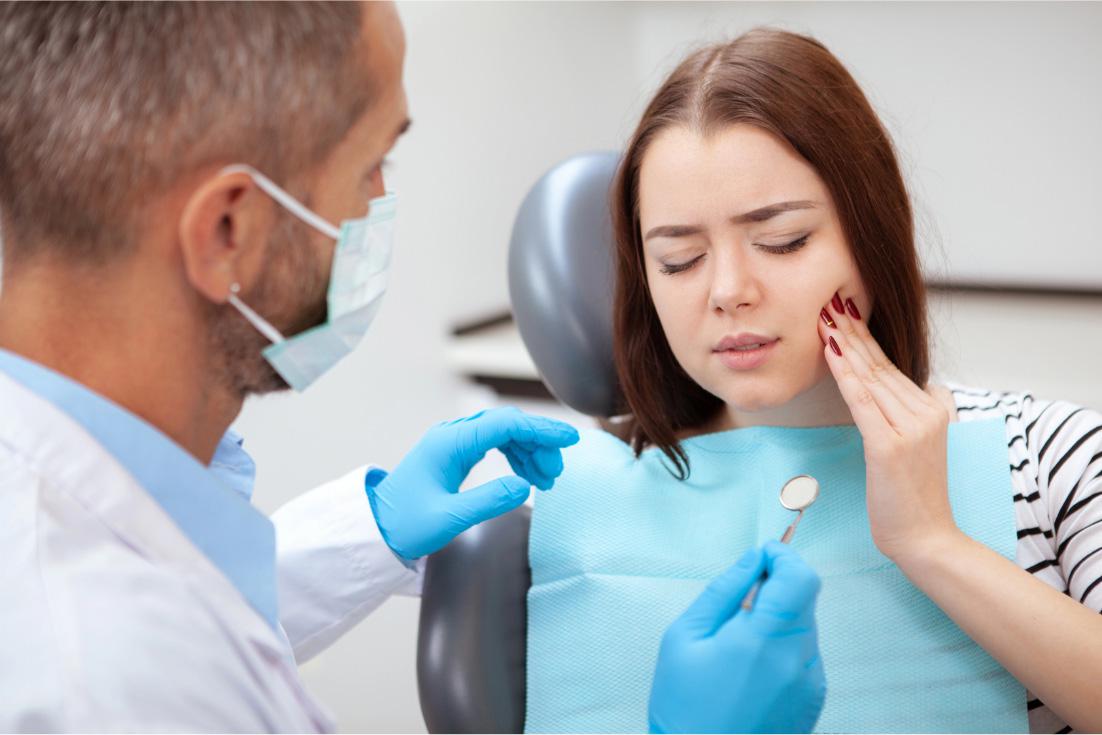Sports Injuries and Dental Emergencies: Protect Your Smile on the Field
When you think of sports injuries, twisted ankles, broken bones, pulled muscles, or concussions immediately come to mind, perhaps because these are the types of injuries we’re used to hearing about from sportscasters.
But did you know? Dental injuries are super common in the wide world of sports, especially among children.
At the end of the day, protecting your smile is just as important as wearing a helmet, padding, or proper footwear. Ignoring dental safety can lead to painful, expensive, and potentially long-lasting consequences for your oral health.
Certain sports carry a higher risk for dental trauma, including high-impact activities like football, hockey, basketball, and martial arts, where direct contact or fast-moving objects are part of the game.
However, even what we consider “less dangerous” sports like soccer or cycling can cause dental emergencies from falls or collisions. Recognizing these risks is the first step in safeguarding your smile from sports injuries.
How Sports Injuries Affect Dental Health
Sports-related trauma can lead to a variety of dental injuries, from minor chips to complete tooth loss. Typical dental injuries in sports include:
- Chipped or fractured teeth
- Knocked-out (avulsed) teeth
- Tooth displacement
- Soft tissue injuries
- Jaw fractures
Studies show that millions of dental injuries occur annually in sports, many of which can be prevented with appropriate protective gear.
Most Common Situations That Lead to Dental Emergencies
- Dental emergencies in sports typically arise when the mouth or face takes a direct hit. Common situations in sports that frequently lead to dental injuries include:
- High-contact collisions: Direct impact with other players during tackles, blocks, or general play, especially in sports like football, rugby, or ice hockey.
- Impact with equipment: A helmet colliding with a player's face or an accidental hit from a bat, stick, or racket.
- Falls during games or training: Losing balance and falling onto a hard surface, leading with the face, is a frequent cause of injury in many sports, including basketball, gymnastics, and skateboarding.
- Accidental hits from projectiles: Being struck by a ball, puck, or shuttlecock at high speed in games like baseball, soccer, or lacrosse.
- Lack of protective mouthguards: Perhaps the most avoidable cause, neglecting to wear a mouthguard dramatically elevates the risk of dental trauma during any impact.
How to Prevent Sports-Related Dental Injuries
The number one preventative step you can take to protect your smile from common sports injuries is to wear a mouthguard. A mouthguard acts as a protective barrier, absorbing and distributing the force of an impact across your teeth and jaw.
A well-fitted mouthguard protects not just your teeth, but also your gums, lips, and jaw joints by preventing them from clashing together upon impact. There are different types of mouthguards available, including:
Stock mouthguards - Pre-formed and ready to wear, these are often bulky, offer a poor fit, and provide minimal protection, but are the cheapest option.
Boil-and-bite mouthguards - Made from thermoplastic material, you soften these in hot water and then mold them to the teeth by biting down. They’re a better fit than stock versions, but still may not provide optimal protection or comfort.
Custom mouthguards - Fabricated by a dentist from a precise impression of your teeth, custom mouthguards offer the highest level of protection, comfort, and fit. They stay securely in place and won’t interfere with breathing or speaking.
Beyond mouthguards, helmets, and face shields in certain sports like basketball add another layer of facial protection.
Regular dental checkups are also important, so your dentist can spot any existing vulnerabilities like weak teeth or prior unnoticed injuries..
Immediate Steps to Take After a Dental Injury
What to do if your tooth gets knocked out:
- Stay calm.
- Locate the tooth.
- Handle the tooth by the crown only and rinse gently if dirty.
- Reinsert the tooth into its socket by pushing it in lightly with your thumb or biting down gently. This is the best way to preserve the tooth!
- If reinsertion is not possible, place the tooth in a cup of milk, a saline solution, or a tooth preservation kit. The last resort is putting it in the patient's mouth next to the cheek, but only if there is no risk of swallowing it. Do NOT store it in plain water because it can damage the root cells.
- Get to an emergency dentist or the nearest emergency room within 30-60 minutes. The sooner the tooth is replanted, the higher the chance of successful reattachment.
What to do for severe tooth pain:
- Rinse your mouth with warm water.
- Apply a cold compress to the outside of your face to reduce swelling. Take an over-the-counter pain reliever if needed.
Always head straight to an emergency dentist in the case of a dental sports injury. If the injury involves a possible concussion, jaw fracture, or other head/neck trauma, go directly to the nearest emergency room.
Working With Your Dentist for Sports Safety
A primary service your dentist provides is fitting custom sports mouthguards. Unlike the boil-and-bite options, they give superior protection and comfort, allowing for normal breathing and speaking.
Remember that regular dental checkups for athletes in contact sports are essential to monitor the health of your teeth and gums, spot signs of wear or stress from sports, and address issues before they become major problems.
Finally, for organized sports, coordinating dental care with athletic trainers or team doctors can simplify injury management. Providing your dentist's contact information or a summary of your dental health will streamline communication, if emergencies arise on the field.
Protecting Your Smile Beyond the Field
Safeguarding your smile extends beyond wearing a mouthguard during games. It also involves creating habits that prioritize dental safety in all aspects of your athletic life, like:
- Carrying a small dental emergency kit
- Making injury prevention a consistent part of training routines
- Encouraging team-wide adoption of mouthguards
When Prevention Isn’t Enough: Treatment Options After Injury
Despite best efforts, dental injuries in sports can sometimes happen. Thankfully, modern dentistry offers many solutions to restore a damaged smile. Common treatment options after a sports dental injury include:
- Bonding or veneers for chipped teeth: For minor chips, dental bonding uses a tooth-colored resin to repair the defect. Porcelain veneers are thin, custom-made shells applied to the front surface of the tooth for a cosmetic fix.
- Root canal therapy for damaged pulp: If a fracture or impact damages the tooth's inner pulp (nerve), a root canal removes the inflamed tissue to save the tooth and eliminate pain.
- Crowns for structural repair: When a tooth has a more significant fracture or extensive damage, a dental crown can restore its strength, shape, and appearance.
- Dental implants or bridges for missing teeth: If a tooth gets knocked out and cannot be replanted or if it needs to be extracted, dental implants or bridges are excellent options for replacing missing teeth and restoring function and aesthetics.
Takeaways
Dental protection, and especially using custom-fit mouthguards, is a non-negotiable part of any athlete's safety gear, just as fundamental as helmets or pads.
And taking quick, appropriate action after an injury can dramatically improve the chances of saving your natural teeth.
Finally, regular dental visits are important for serious athletes to keep their smile strong, resilient, and ready for every season of play.
In sum, protect your smile, so you can continue to enjoy the game you love!
For expert dentistry for the entire family, make an appointment online at Woodland Hills Dental Care today.


